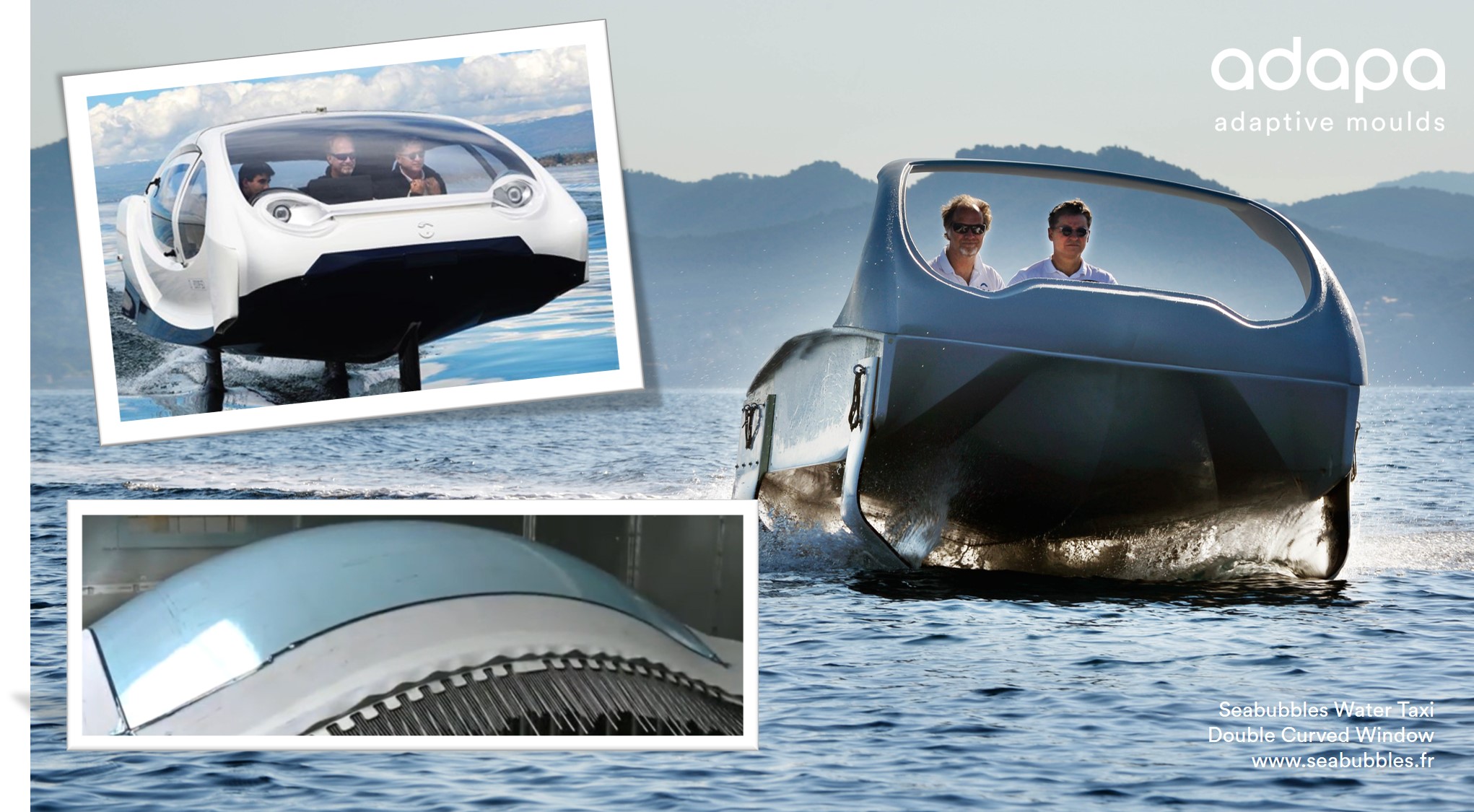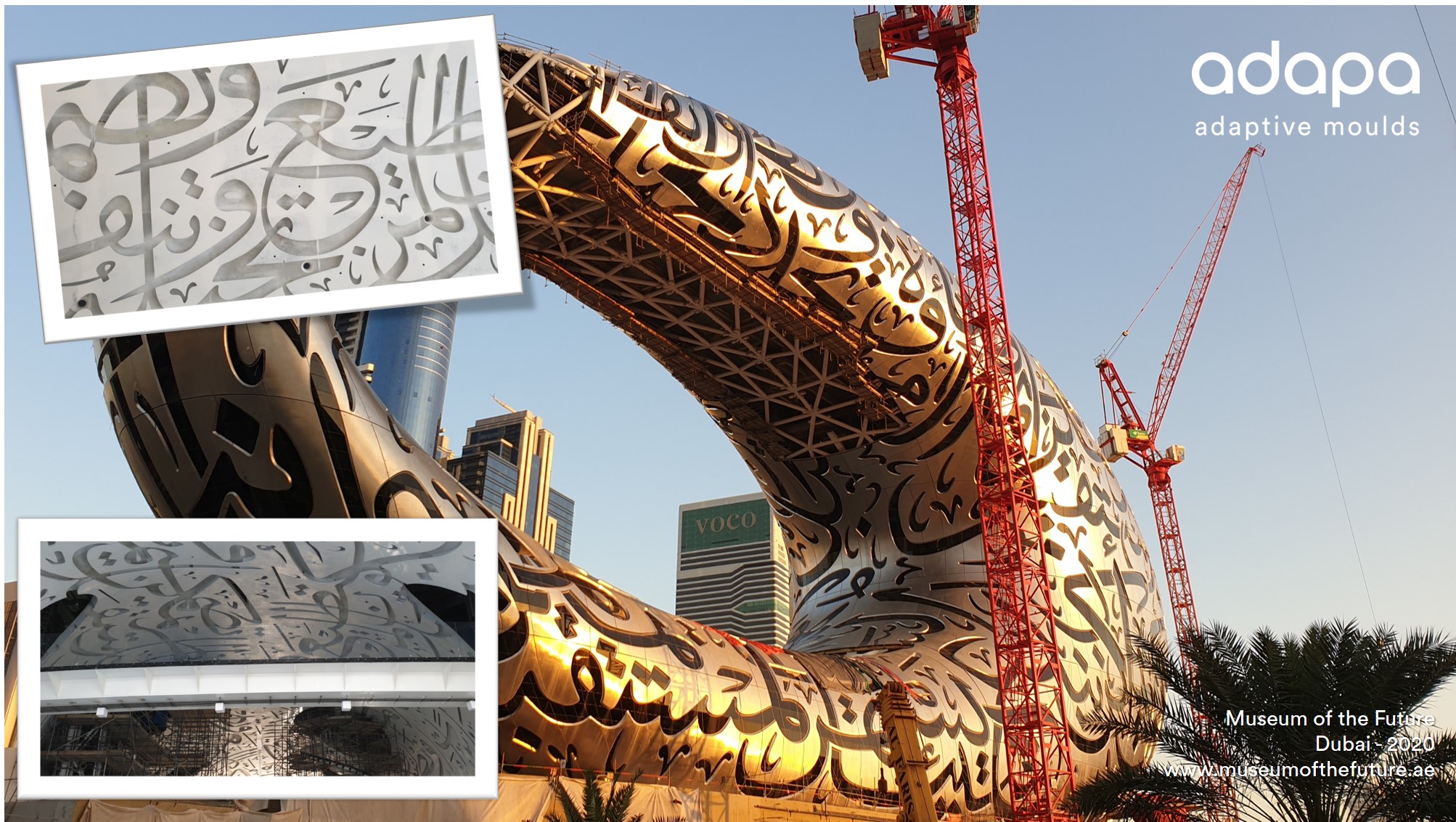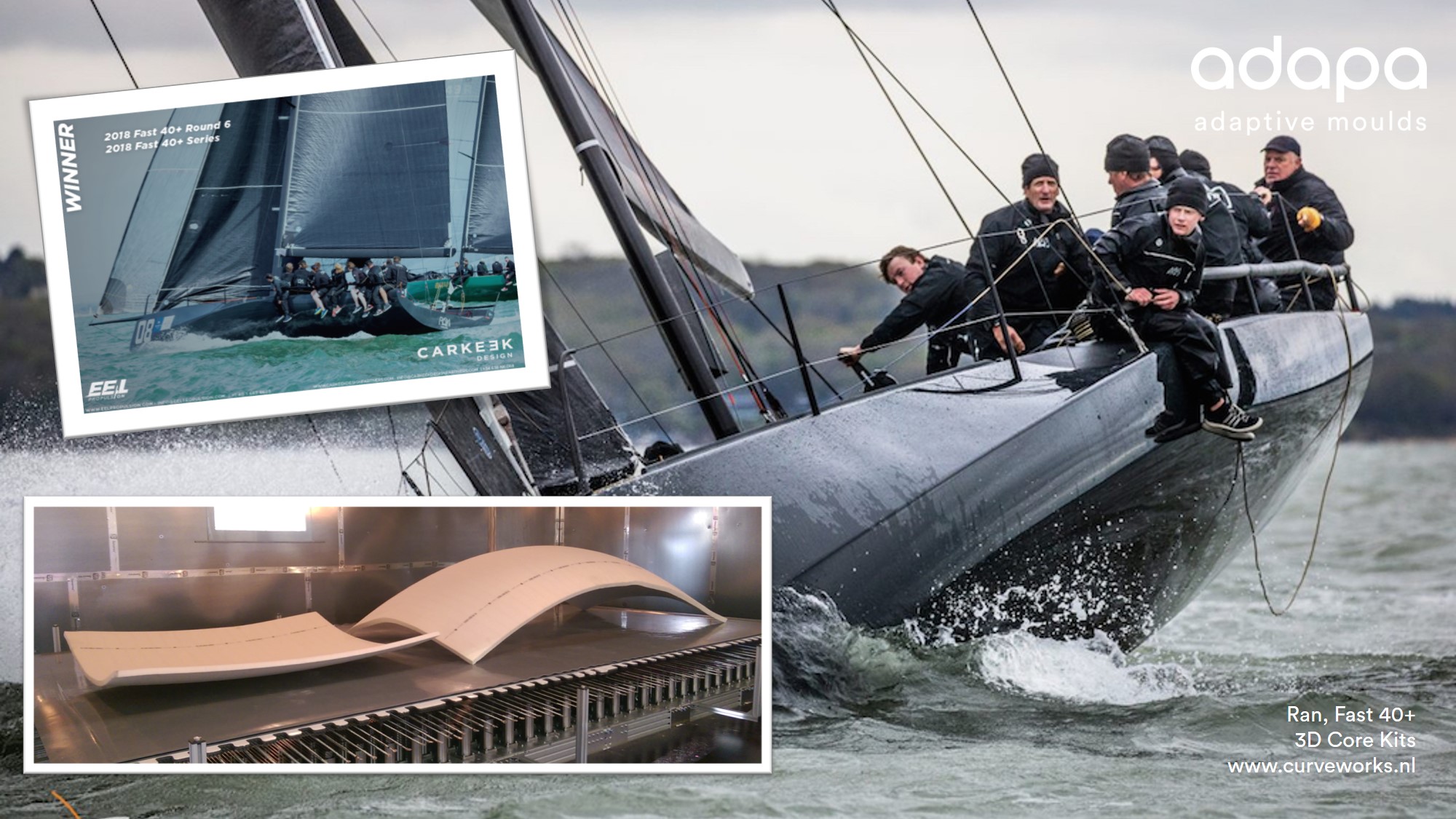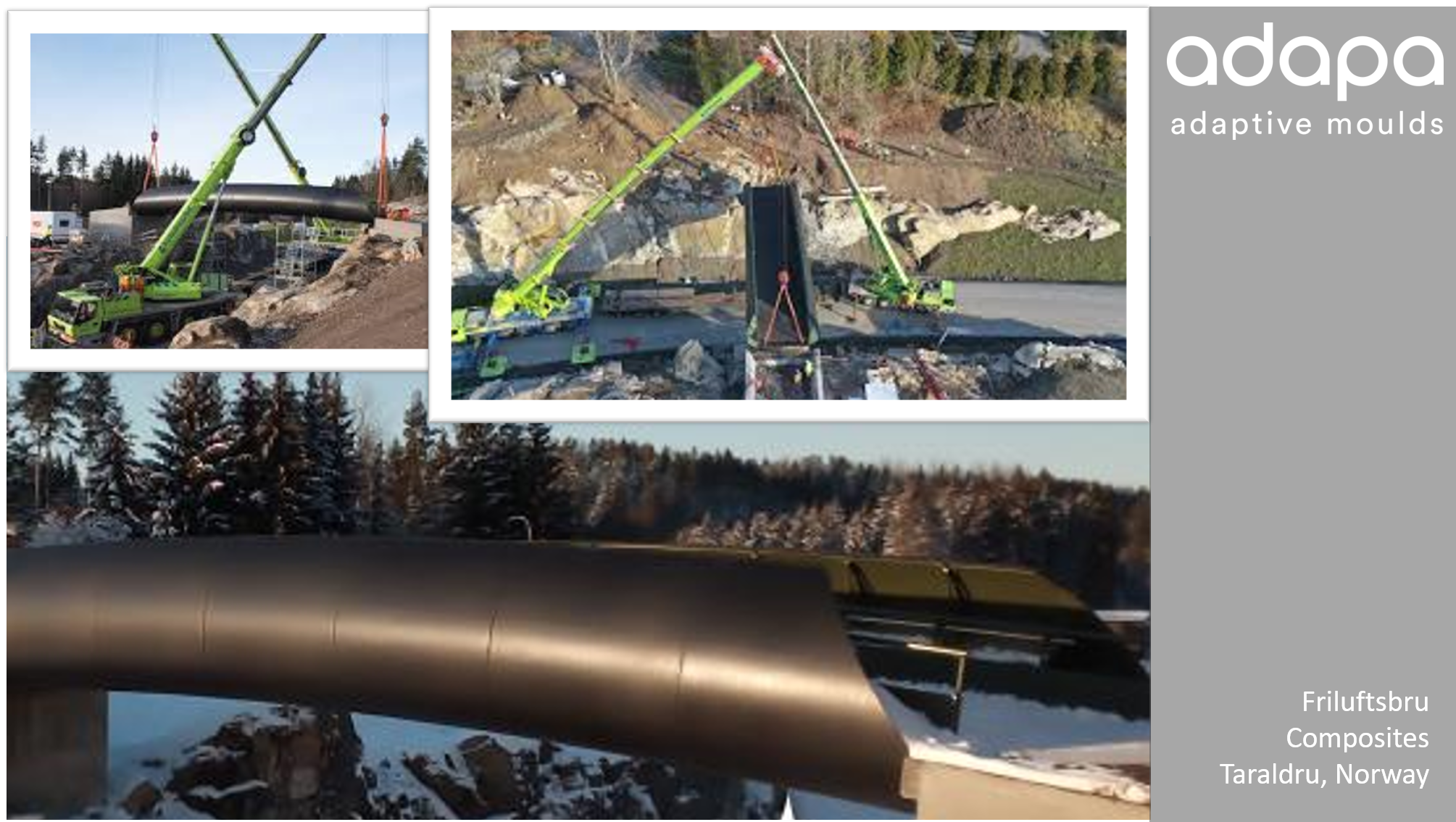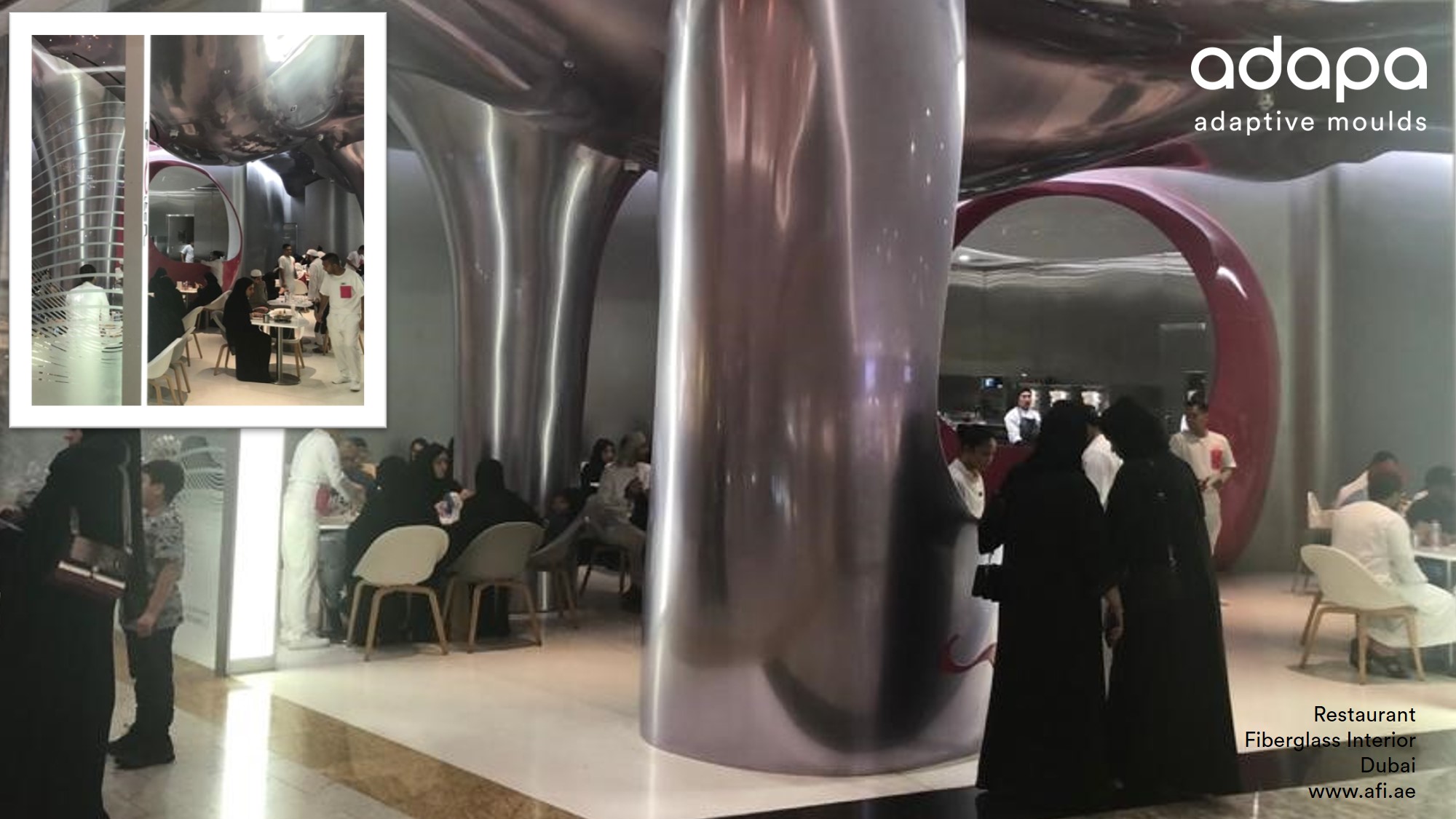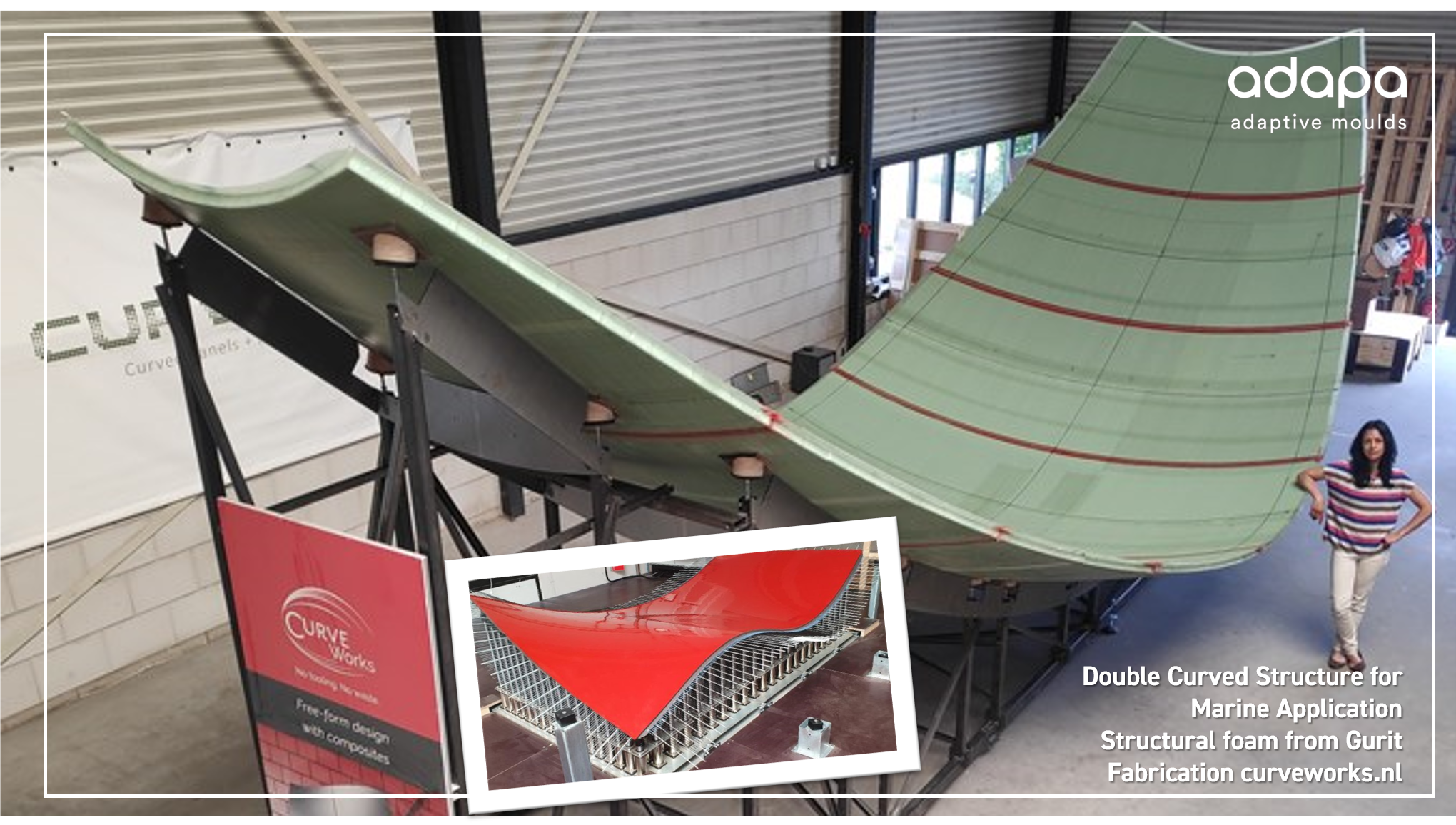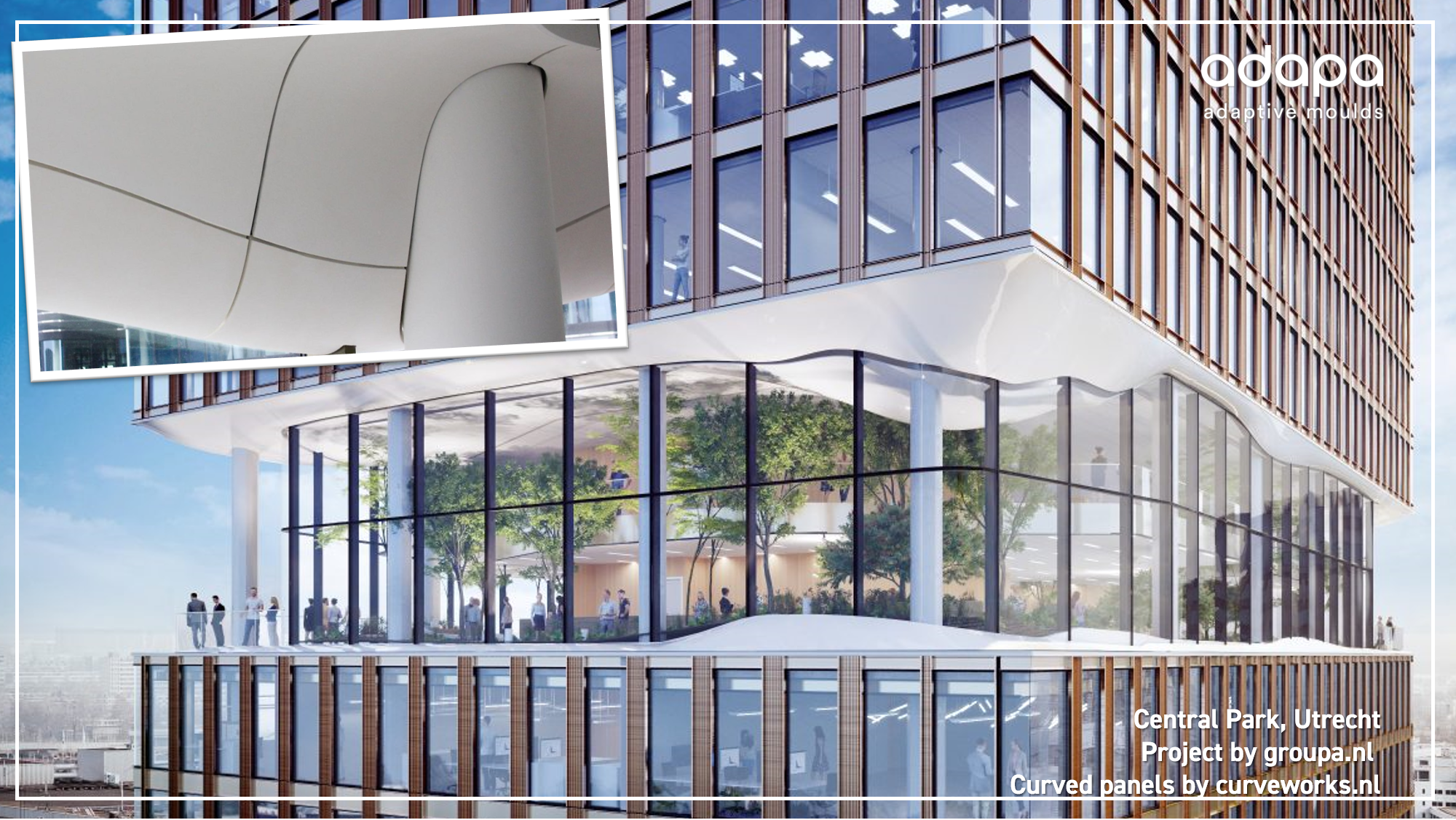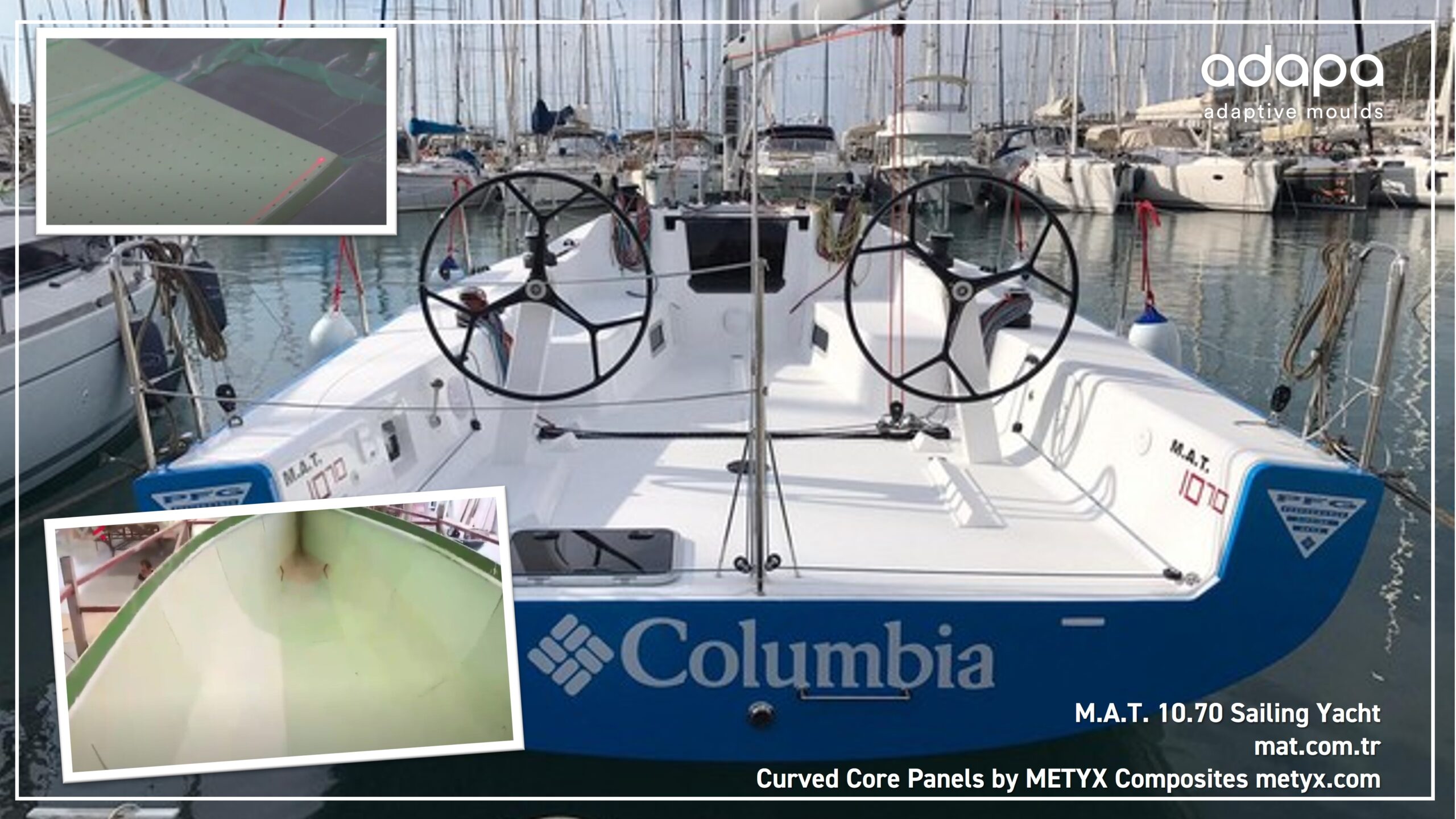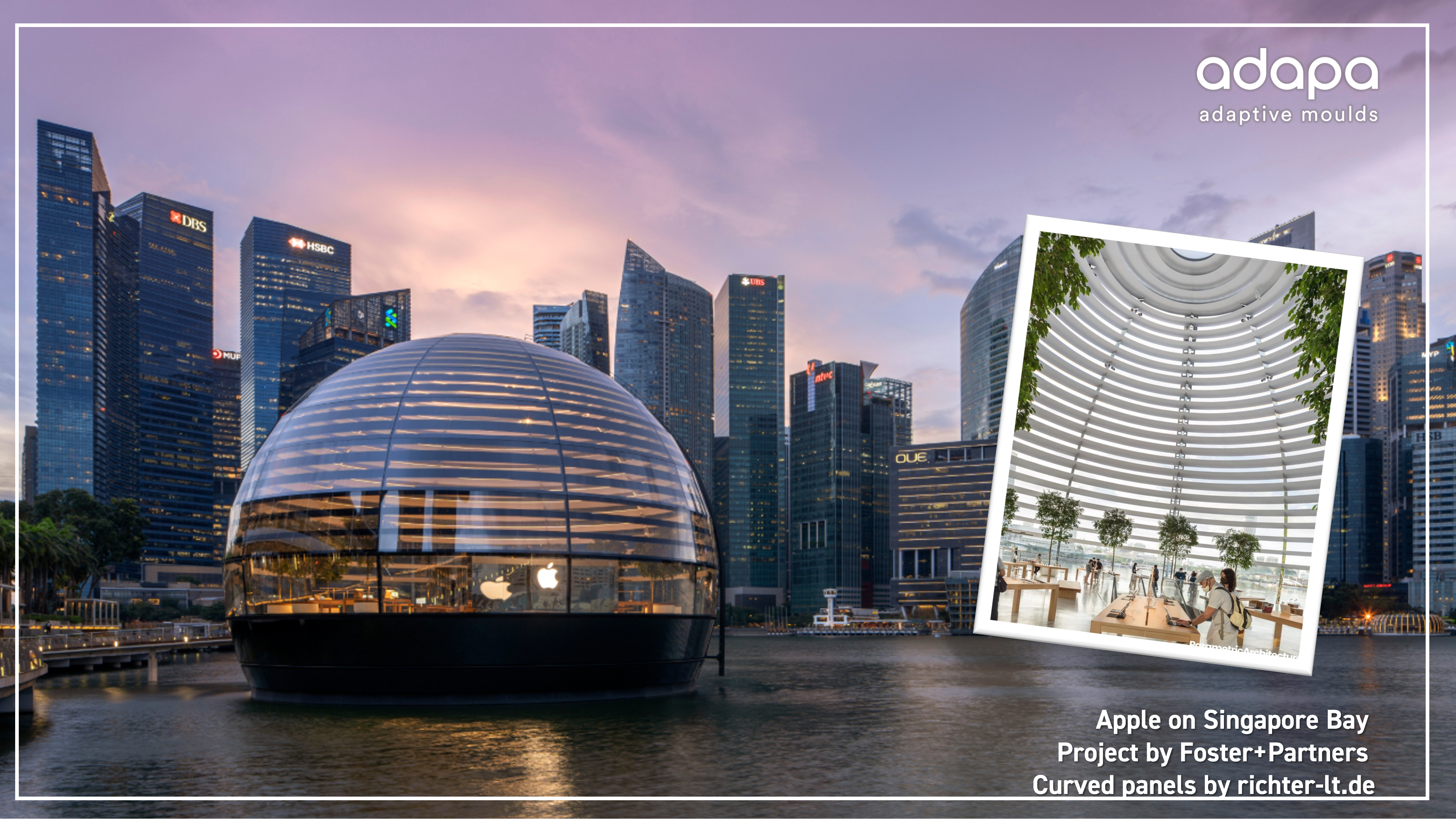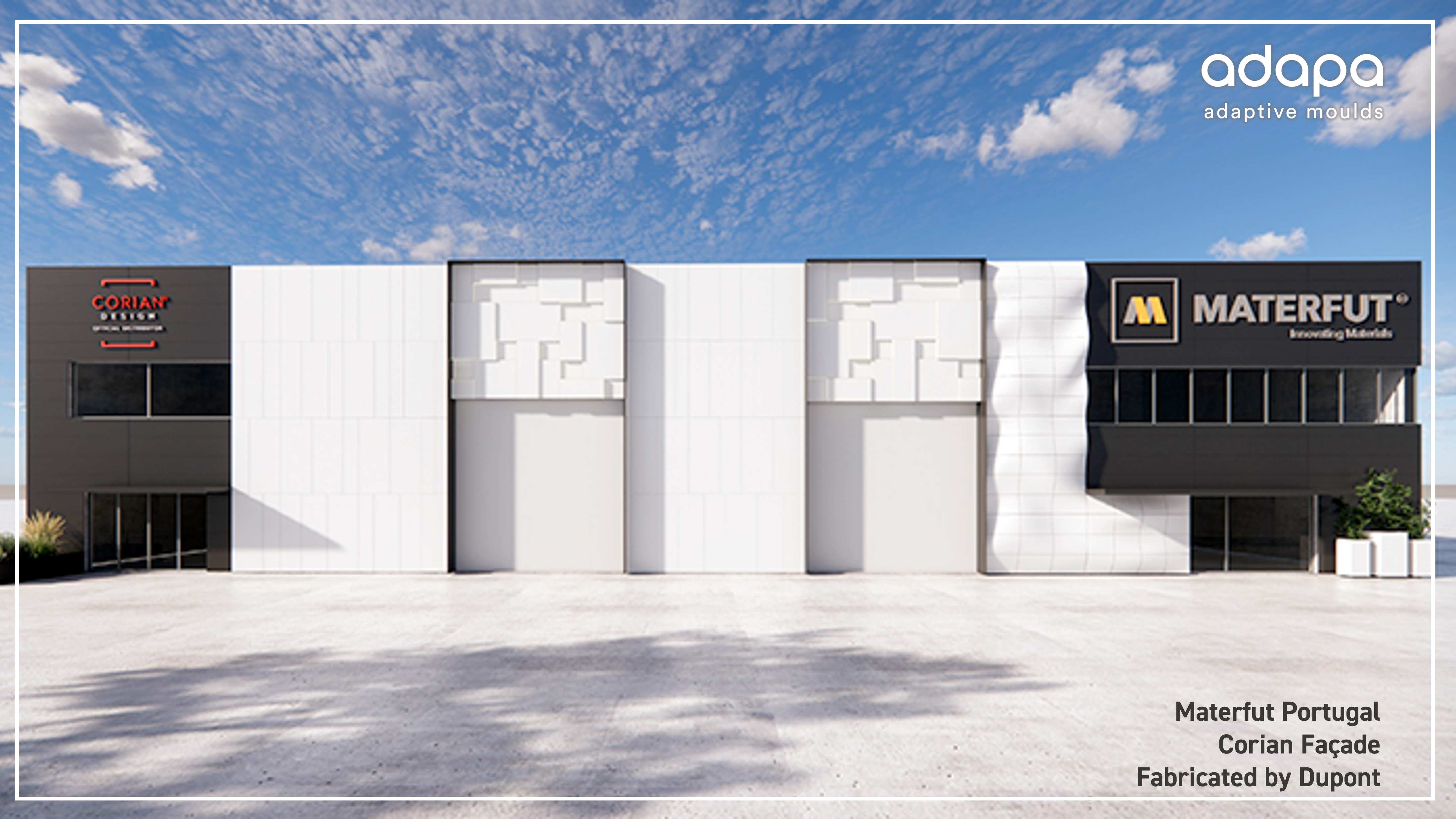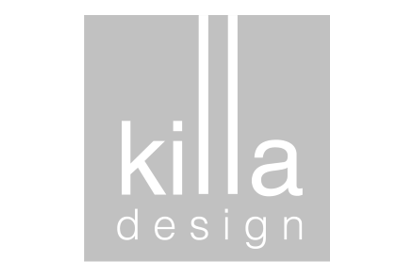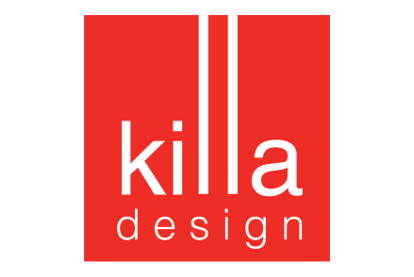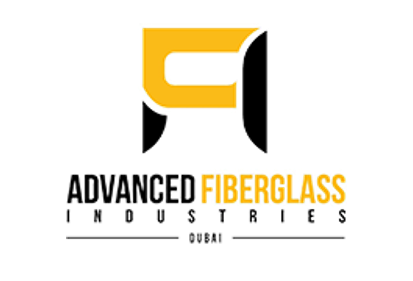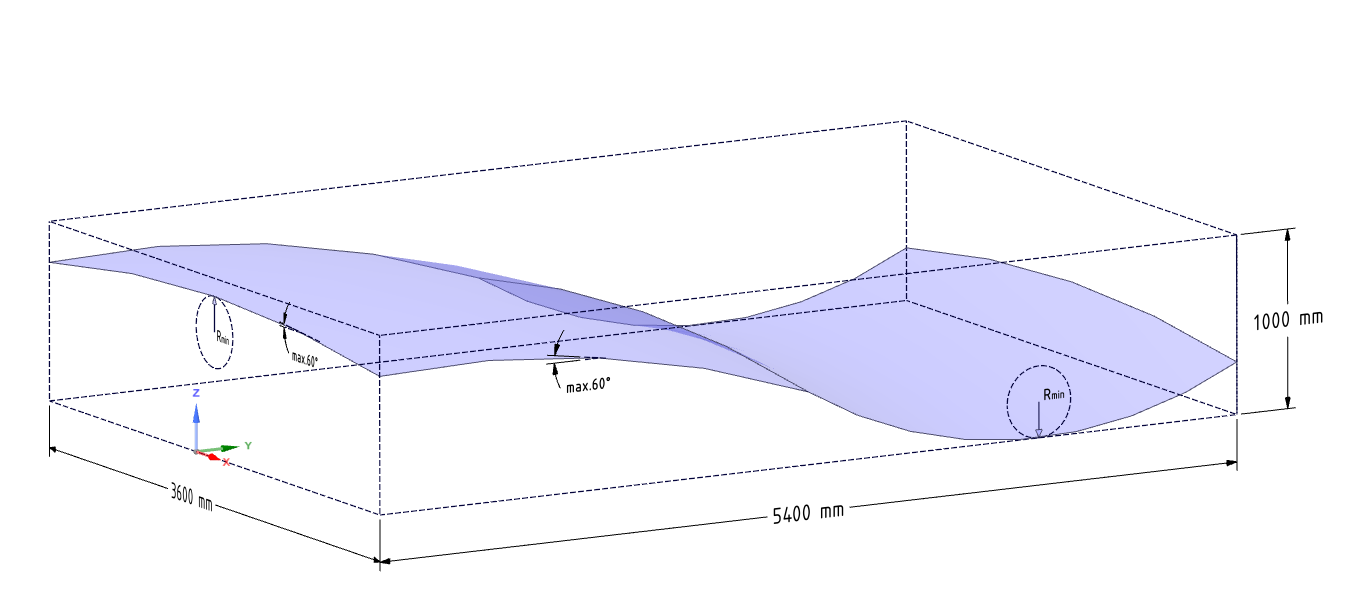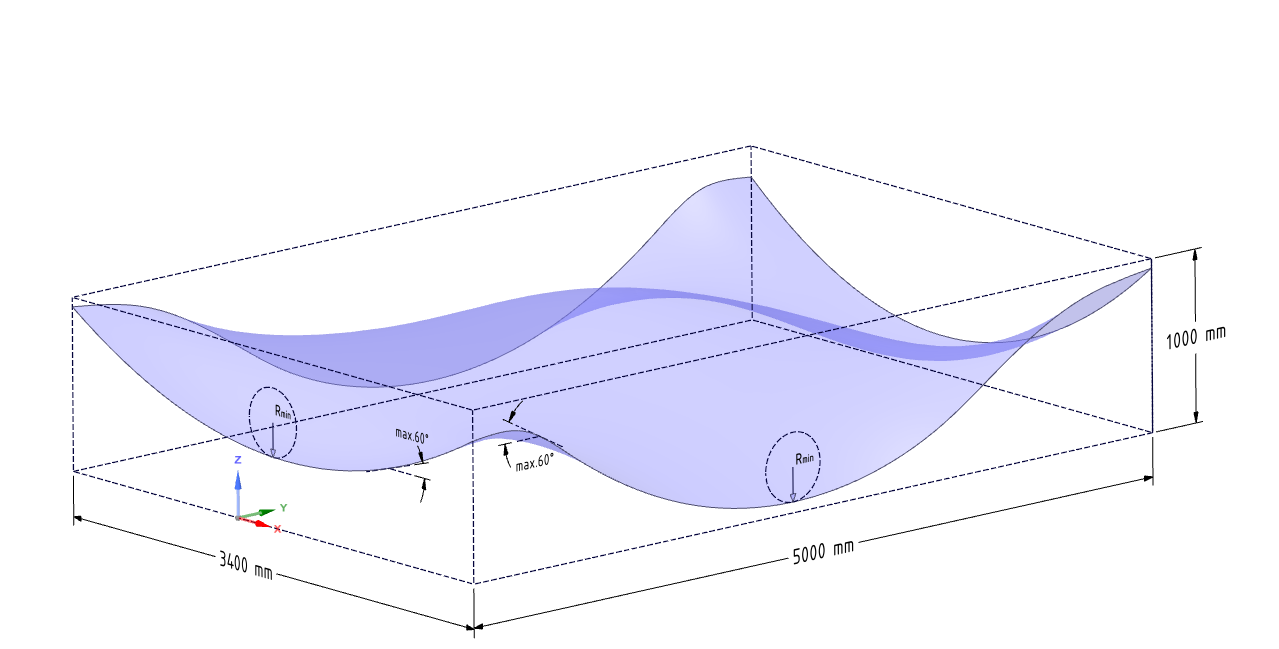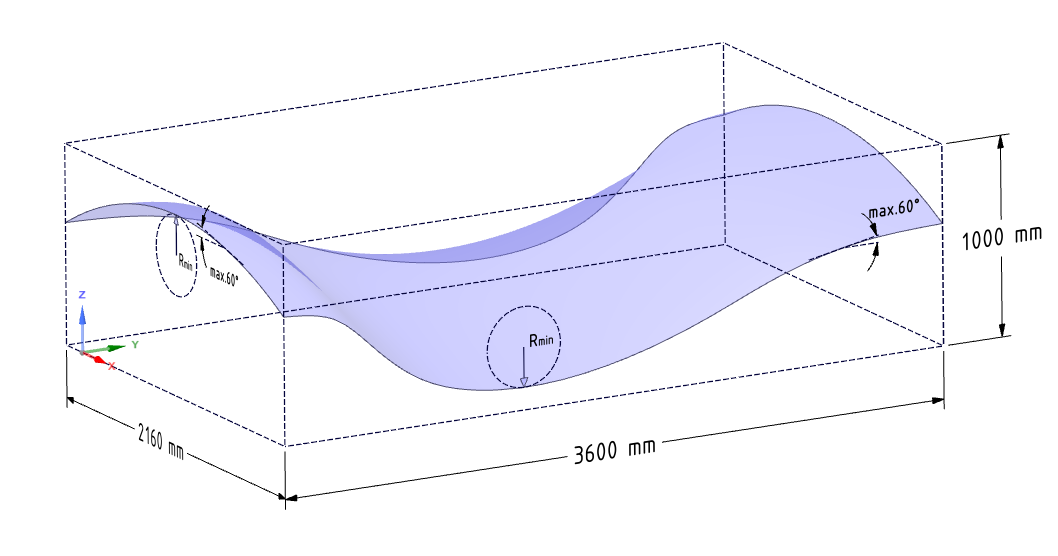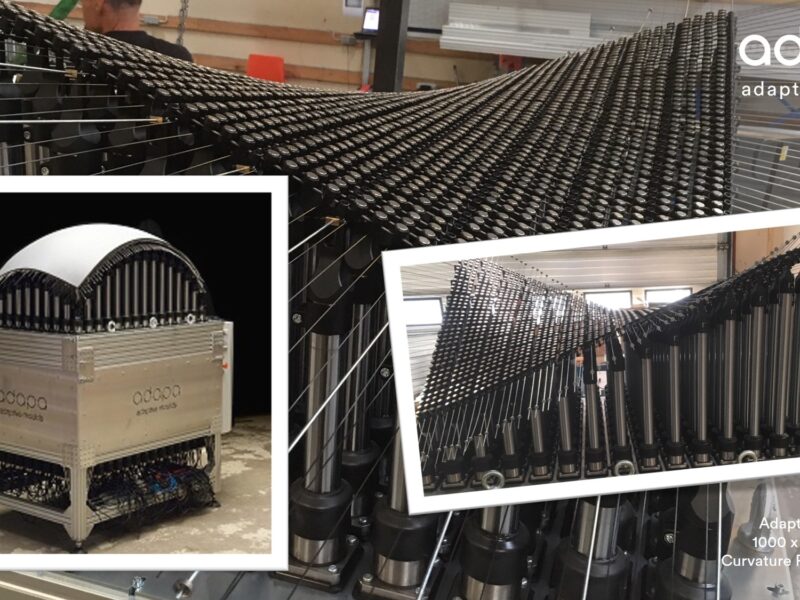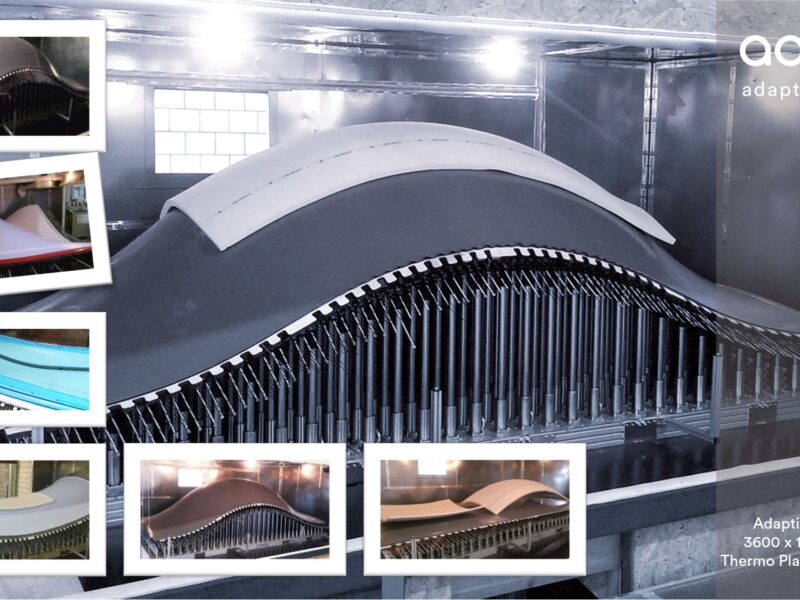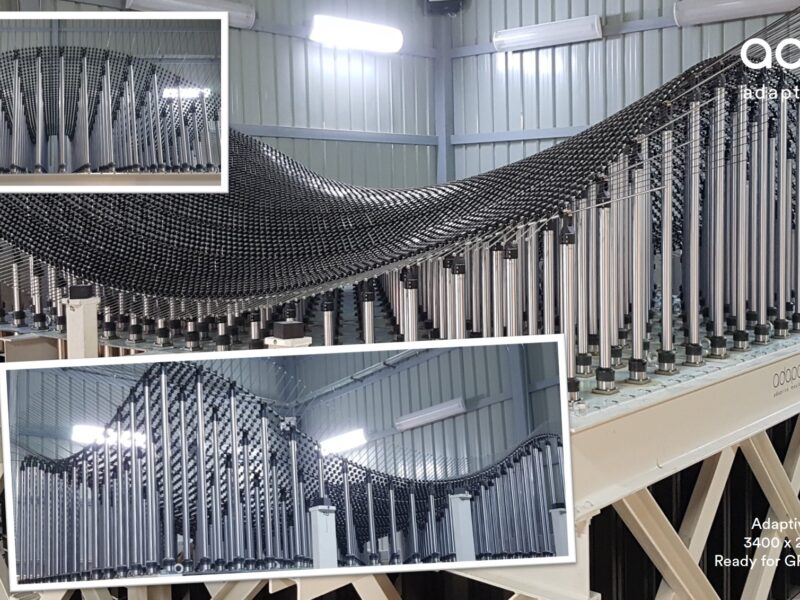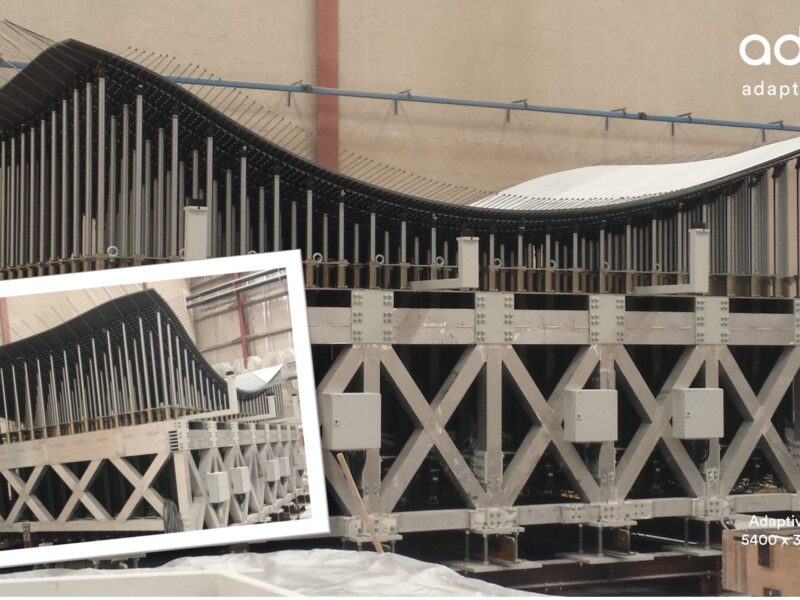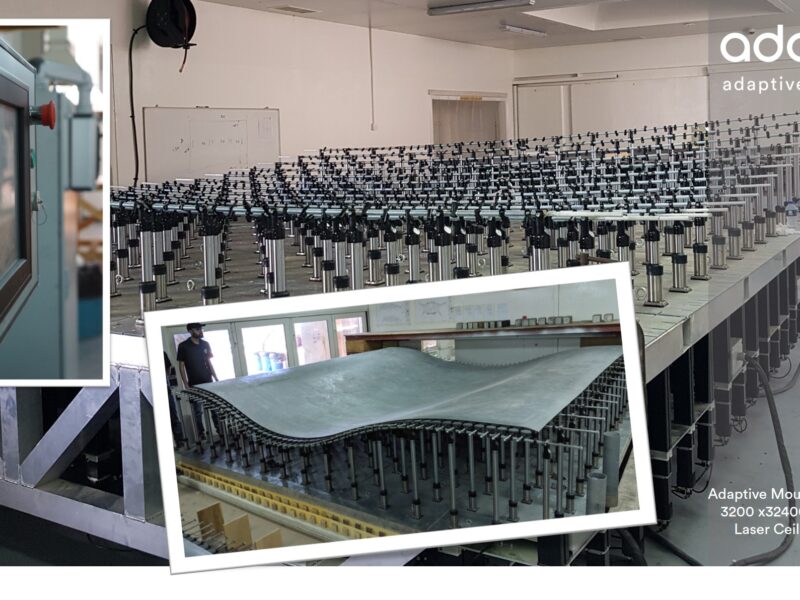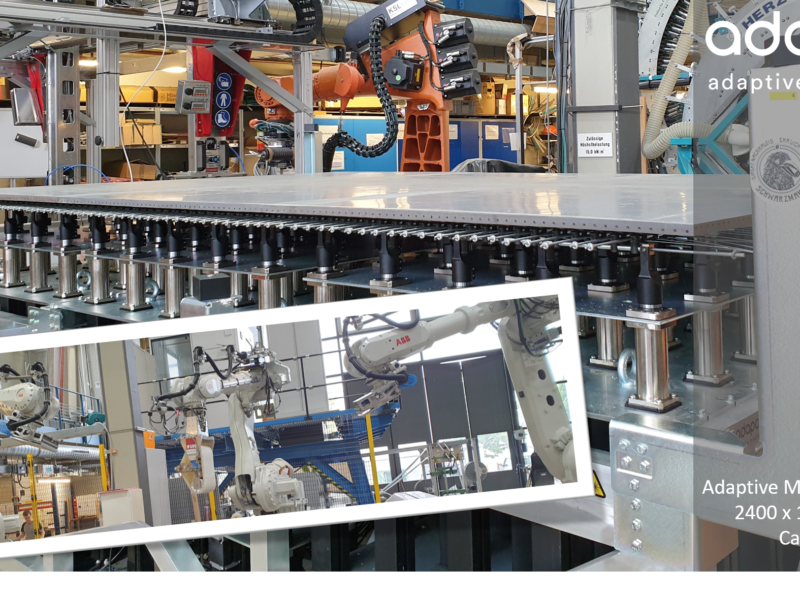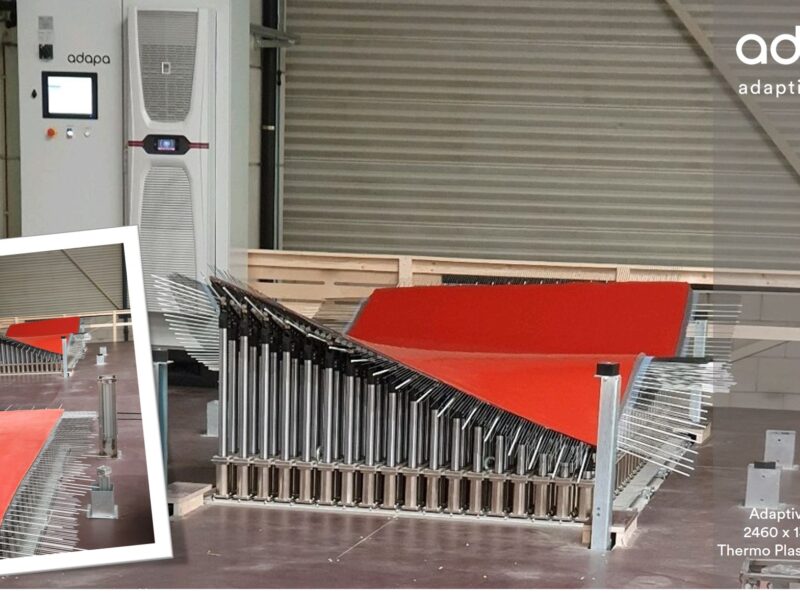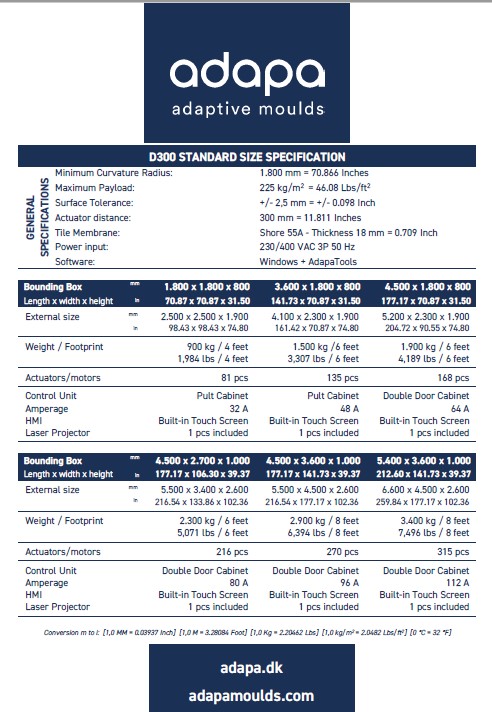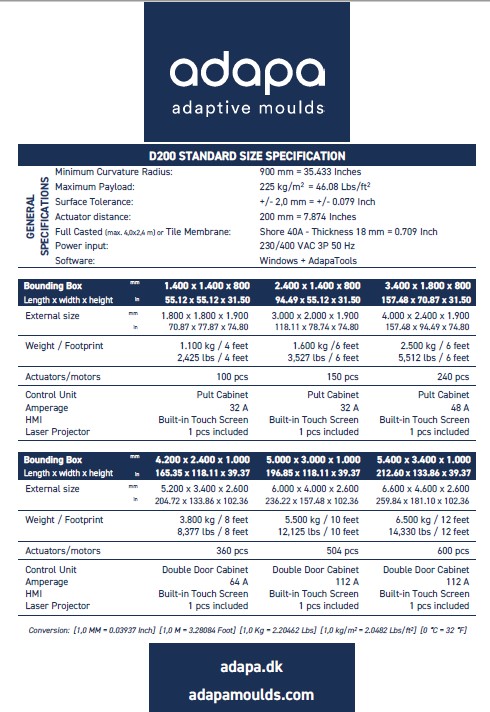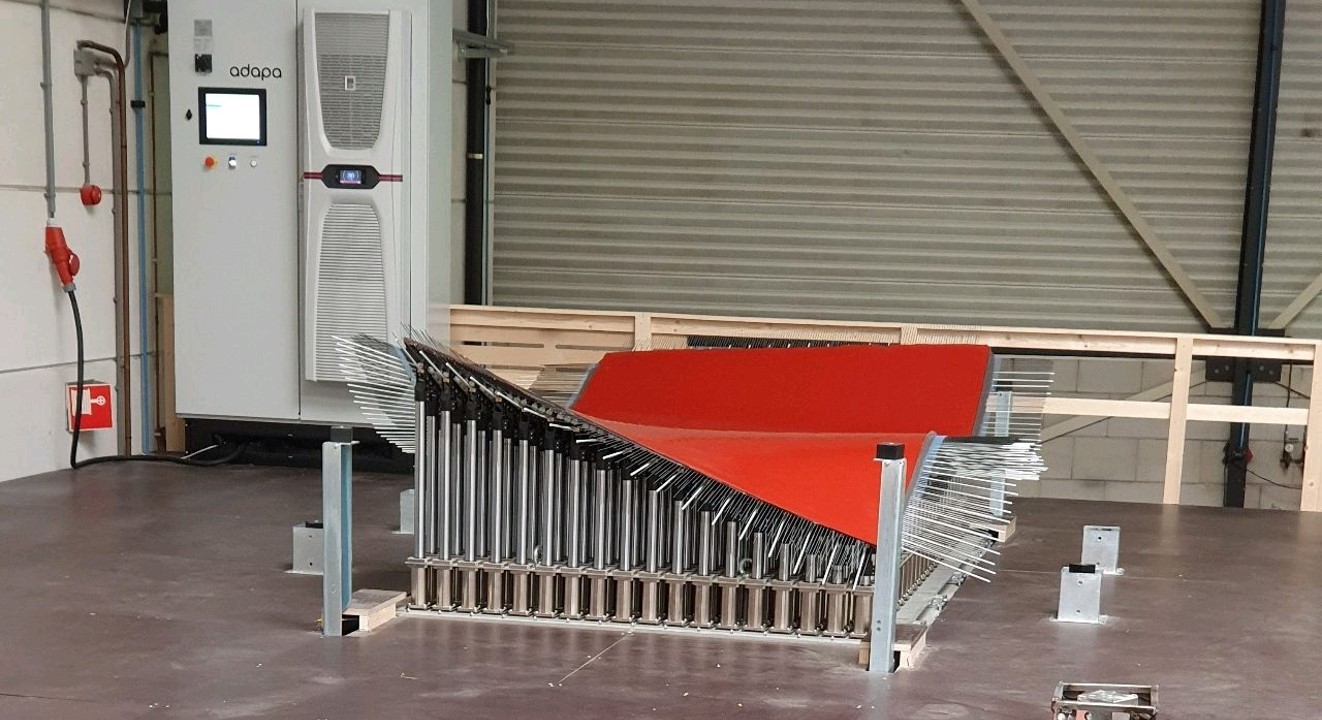
Composites
The Adaptive Mould for Composites enables manufacturing companies to produce low-repetition curved composite panels faster, affordably and more sustainably than alternative techniques.
There is a rise in demand for composite materials across industries such as construction, aerospace, automotive, marine, wind energy and more.
Composites typically holds a higher strength to weight ratio than traditional materials. In addition to this, composites offer other advantages including flexibility, durability, resistance to corrosion, easy maintenance, and it is freely bondable with non-composite materials as well.
Every industry has their own set of use cases for using different types of fibers in their composite mix, including glass and carbon. However, one challenge that cuts across all these industries and materials, is the lack of technological innovations that can help curve the composite panels.
Adapa cooperate with experts from the field of composites, to help them shape their composite material for unique curved applications.
Reference Projects
Clients
Fast
One mould can take multiple shapes, and it can do so within minutes. This means that you have:
Affordable
The Adaptive Mould eliminates the need for manufacturing unique tooling for every panel and because of this you have:
Sustainable
The Adaptive Mould significantly reduces your potential waste of disposable moulds, which means that you have:
There are three different adaptive mould types that can be used for curved composite manufacture:
Technical Data for Double Curved Adaptive Mould Types for Composites and Thermoplastics
Main Technical Features
D300
D200
D100
Minimum curvature radius
mm
1800
900
400
Maximum casting area
mm
5400 x 3600
5400 x 3400
3600 x 2160
Maximum payload
Kg/m²
225
225
280
There are more advantages that can be achieved:
Multi Stage Forming
The flexible properties of the Adaptive Mould allow for multi-stage forming, including a process such as the following:
High precision
The Adapa Tools software eliminates the need for manual measuring and support you to benefit from the advantage of:
Collaborative Technologies
The Adaptive Mould is designed to handle surface temperatures up to 140o C and collaborate with several technologies:


